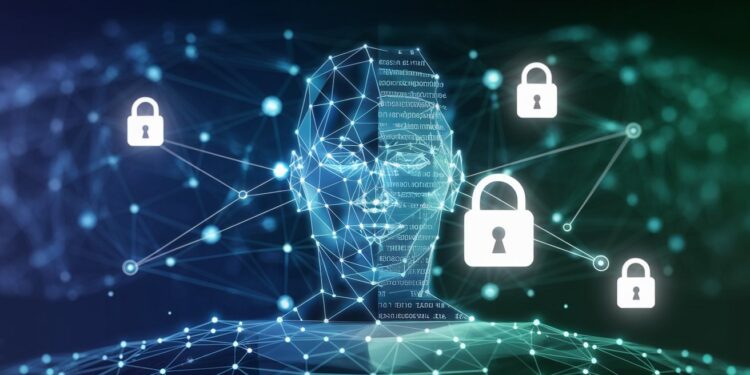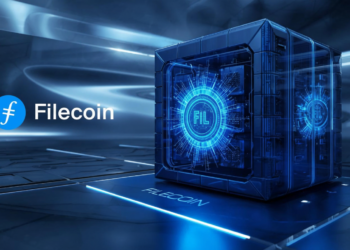The digital world can be a double-edged sword. While it offers convenience, it also poses serious threats to personal privacy. Every click and every online interaction leaves a digital footprint. These footprints are often collected, sold, and used without our consent, leading to an alarming lack of control over our personal data. With increasing incidents of data breaches and constant surveillance, the need for better privacy solutions becomes clear.
The Current State of Online Privacy: Data Breaches and Surveillance
Online privacy feels like it’s slipping away. Major companies experience frequent data breaches, exposing personal information of millions. In addition, surveillance technologies track user activities, often without notification. This creates a climate of distrust, making people anxious about their online presence.
The Promise of Decentralized Identity: A Paradigm Shift
Decentralized identity (DID) systems represent a new approach that allows individuals to take control of their personal information. By using blockchain technology, DIDs empower users to manage their identities securely and privately. This paradigm shift helps to balance the scales between individuals and large organizations, promoting a more secure digital interaction.
Thesis Statement: Blockchain technology offers a path towards greater user control and data privacy.
Understanding Decentralized Identity (DID)
Defining Decentralized Identifiers and Their Core Principles
Decentralized Identifiers (DIDs) are a new way to identify yourself online without relying on central authorities. These identifiers are unique, secure, and easily manageable. Key principles include user control, privacy, and security.
Key Differences Between DID and Traditional Identity Systems
Traditional identity systems rely on centralized authorities, such as banks or governments. In contrast, DIDs grant individuals full control over their data. This means users can share only the necessary information for any interaction, minimizing exposure.
The Role of Self-Sovereign Identity (SSI)
Self-Sovereign Identity (SSI) is a concept closely related to DIDs. It emphasizes that individuals own their identities. SSI enables users to present their credentials without needing to ask a central authority for permission. This approach fosters privacy and strengthens user empowerment.
Blockchain’s Role in Securing Decentralized Identity
How Blockchain Technology Enables Secure Data Storage and Management
Blockchain is a distributed ledger that securely stores data across a network of computers. By using blockchain for DIDs, personal data remains safe and unchangeable. Users can access their information anytime, from anywhere.
Cryptographic Techniques for Enhanced Privacy and Security
Cryptography plays a vital role in decentralized identity. Complex algorithms protect data by transforming it into unreadable formats. Only authorized individuals can access the original information, ensuring privacy and security.
Smart Contracts and Their Applications in DID Systems
Smart contracts are self-executing agreements on the blockchain. In DID systems, they automate processes like verifying identity and sharing information. This reduces manual efforts and speeds up transactions while ensuring that data remains secure.
Real-World Applications of Decentralized Identity
Examples of DID Implementation in Various Sectors (e.g., healthcare, finance)
Many sectors are already benefiting from decentralized identity solutions. In healthcare, DIDs help patients control access to their medical records. In finance, they streamline onboarding processes while ensuring user privacy.
Case Study: A successful decentralized identity project and its impact
One notable example is the Sovrin Project, which offers a decentralized identity network. It enables users to prove their identity while keeping their data private. This project has gained traction in various industries, showing the potential of DIDs.
Benefits and Challenges of Widespread DID Adoption
While the advantages of DIDs are numerous, challenges remain. Users must understand how to manage their identities securely. Interoperability between different systems is another hurdle, as widespread adoption requires seamless communication between platforms.
Building a Decentralized Identity: A Practical Guide
Choosing the Right DID Solution: Platforms and Technologies
There are several DID solutions available. Some popular platforms include Ethereum, Sovrin, and SelfKey. Research each option and choose one that fits your needs.
Step-by-Step Guide to Setting Up a Decentralized Identity
- Select a Platform: Choose a DID solution that meets your goals.
- Create Your DID: Follow the platform’s instructions to generate your unique identifier.
- Secure Your Data: Use cryptographic tools to protect your information.
- Manage Your Credentials: Keep track of your digital credentials and share them responsibly.
Best Practices for Securely Managing Your DID
To ensure the security of your decentralized identity:
- Regularly update security measures.
- Use strong passwords.
- Only share data when necessary.
- Stay informed about security threats.
The Future of Decentralized Identity and Privacy
Emerging Trends and Innovations in DID Technology
As technology evolves, so do decentralized identity solutions. Innovations like biometrics and artificial intelligence are being integrated with DIDs to enhance security and user experience.
Addressing Scalability and Interoperability Challenges
For DIDs to be effective on a large scale, issues like scalability must be addressed. Efforts are underway to ensure different systems can communicate seamlessly, making DIDs more accessible.
The Potential of DID to Transform Online Interactions and Trust
With the rise of DIDs, we may see a future where online interactions are more secure and trustworthy. People can connect without worrying about their privacy being compromised.
Conclusion: Toward a More Private and Secure Digital Future
Key Takeaways: Recap of the benefits of decentralized identity
Decentralized identity brings hope for a future where users control their personal data. Key benefits include enhanced privacy, security, and empowerment.
Encourage readers to explore and adopt DID solutions
Take the initiative to explore decentralized identity solutions today. By adopting DIDs, you contribute to a more secure digital future.
Looking Ahead: Future possibilities and the ongoing evolution of DID technology
The evolution of decentralized identity technology promises exciting changes. As we continue to develop this space, users must stay engaged and informed. The journey toward privacy protection and digital empowerment is just beginning.

























